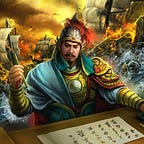Play and Playfulness
Humans are full of feelings. Some are more important than others. Beyond the usual happy, sad, mad, love, hate, etc… humans possess more complex feelings that contribute to their basic nature and their fundamental needs. Play and playfulness are such feelings.
Playfulness is the lightness that something brings. It is the airy quality that stirs positive emotions inside of you. Playfulness frequently makes use of opposite meanings in order to stir those feelings within us. Play is the state of enjoyment we feel when we are actively engaged in some activity that brings us pleasure. Both are absolutely essential to our mental and emotional well-being seeing as they bring us positivity, and that is what allows us to proceed in life and be resilient in the face of hardship.
Play in this instance does not refer to activities on devices. It refers to the physical activities we perform to engage ourselves in that state of play. The activities on devices give us pleasure, but do not promote the same amount of development as physical actions, so for my purposes are not counted as “true” play.
Many people use playfulness to cope with difficult circumstances. One example is a child who is ill. The child would not feel happy or positive at all. A parent who comes up with creative and fun ways to entertain the child may find that the result is a faster recovery for the child.
As well as human homeostasis, play and playfulness enables people to develop their intellectual capabilities. For example, irony is a device that people use to inject humor (an element of playfulness) into something. The playfulness is only realized if the person comprehends the irony. Such comprehension comes with increased practice and intellectual development.
Children appear to be some of the happiest people in the world. Perhaps this could be attributed to their innocence or navieté, but I tell you, the true reason is play. Because children are allowed to play, and do so often, they build social skills, mental intelligence, and emotional intelligence. Being allowed to freely express themselves with minimal to no restraints grants an all-encompassing freedom to their activities. Therefore, children who do play often are able to develop into the best versions of themselves.
This process of self-discovery we call play is ingrained into the very fiber of our beings. Unfortunately, this essential strand of the human mind is being neglected in favor of academic development. Society has become too fast-paced. From a young age, people are now being trained to excel past the average standards for people. In this academic arms race, our youth is being destroyed. Academic development is good and fine, but there must be room for kids to be kids. Play is an essential part of our development. Kids are now suffering mental and emotional distress at greater rates than before because of the intense pace of our society. While it is true that one can’t play all the time, childhood should be left for children to enjoy themselves. Playtime will have to be steadily winnowed down as the children age, but by the time they have reached maturity, they will have hopefully reaped the benefits of balanced play and education.
If the extra education a kid has does actually make him/her happy, then by all means the child should continue. An example of extra education is the ubiquitous piano lesson. If the child really, truly does love playing the piano, then the child should be allowed to. The education allows the child to develop an art or skill which may be an important, defining characteristic in his/her personality. If the child despises the education, then the lessons should be halted; you’ll waste time, money, and the kid’s development.
After our sophomore English teacher let us play for a whole period, a classmate of mine made a statement that struck me as a brilliant summary of the ideas I have attempted to present.
“From this experience I learned that our inner kid never disappears.”
Our inner kid, that is, our childhood and everything we’ve done in childhood; that influence never disappears. Shouldn’t we then, sculpt childhood into such a time that allows an illustrious future to spring forth? Such a shining destiny can only be possible if people are able to get along and think abstractly; skills that manifest themselves after play.
I have personally noticed that now, the smaller children of this age has become more ornery, disconnected, and uncooperative. Perhaps it has to do with the massive substitution of devices for “true” play. The decline might have something to do with the hugely cramped schedules that our youth has today. Whatever the reason, we must actively strive to give the new generations the gift of play. It is for their own good, and the good of all people that they learn the skills they need to thrive in this interdependent world.
